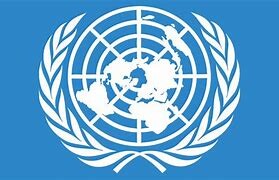January 20, 2022
Pearson Centre connects with UNESCO on Innovation
By Andrew Cardozo

Pearson Centre connects to UNESCO initiative on Innovation
Pearson Center Board Member Jonathan Calof (uOttawa and UNB) has been appointed to senior UNESCO position, as Co-Chairholder for the new UNESCO program on Anticipatory Systems for Innovation and New Venture Creation. He will co-chair with Dominic Blakely (UNB).
At the recent Future of Innovation Disrupted 2,2 Conference (January 10, 2022), Dr. Jonathan Calof (Professor Telfer School of Management, University of Ottawa and Adjunct professor University of New Brunswick) and Mr. Dominic Blakely (University of New Brunswick’s Innovation and Entrepreneurship Strategist) were announced as Co-Chairholders for the UNESCO Chair on Anticipatory Systems for Innovation and New Venture Creation. The is the first UNESCO Foresight chair appointment in Canada.
The chair will be housed within The University of New Brunswick’s J Herbert Smith Centre for Technology Management and Entrepreneurship, Through research, teaching and community engagement and operating through a network of 18 partners and supporting agencies around the world which includes the Pearson Centre. Dr. Calof and Dominic Blakely will explore the nature and role of anticipation in innovation and new venture creation in developing economies, disadvantaged regions, and marginalized groups and help them build skills and knowledge in anticipation for innovation and new venture creation through targeted programing. In particular the program will prioritize initiatives that address innovation and new venture challenges of immigrant communities, women’s empowerment, rural communities and youth within Atlantic Canada, Africa and India.
Pearson Centre president Andrew Cardozo noted, “the objectives of this new UNESCO initiative are very much aligned with the Pearson Center’s priorities of economic recovery through innovation and inclusion, with a special nod to a multi-lateral approach.
“In fact, the Chairs opening program had two round tables – one on women leading change and the other on rural economies are important to us as well and have been looked at in our Economy for Tomorrow Series. The core of chairs activities focus on building a better future for Canada, especially in areas that have historically been disadvantaged as well as in India and Africa, which again are focuses of our Economy for Tomorrow series. We look forward to working with the UNESCO Chairs and are delighted that our board member is co-chairing the first UNESCO Foresight chair in Canada”, Mr. Cardozo added.
Calof and Blakely offer more than a combined seven decades of work in the field of foresight, competitive intelligence, anticipatory systems and policy development. Dr. Calof has a long history in research, consulting, and teaching as well as publications and serves on the editorial board of foresight and competitive intelligence journals (anticipatory systems). Mr. Blakeley has taught for 6 years to early venture startups, has been organizing local, regional and global events for over 30 years, and has served as a strategic advisor to senior UNB leadership as well as in the political sphere to various Federal, Provincial and Municipal leaders.
Specific activities and objectives of the chair include:
– Undertake research, teaching and community engagement th.at cultivates Futures Literacy\ primarily through work with marginalized groups. The activities of the Chair will contribute to capability-based approaches to development by adding value to humanity’s understanding of the relationship between anticipatory systems/processes and all forms of change, from innovation and reform to transition and transformation. The Chair will conduct this work on Futures Literacy in close collaboration with regional actors, ranging from innovation centres to indigenous-based NGOs, as enabled by a variety of projects; from action-research/action-learning ‘living’ laboratories to conventional conferences, online courses and joint research;
– Generate knowledge, taking a range of epistemic perspectives – from conventional empirical studies to embedded action-research, that add value to efforts to better understand the role of anticipatory systems and processes in decision-making and human agency in general;
– Implement capacity-building activities with the aim of developing anticipatory skills and knowledge for use in innovation and new venture creation through an undergraduate and mentorship program as well as regional training sessions;
– Enable inclusivity at a global level and prioritize knowledge creation and idea exchange through international partnerships that target marginalized;
– Ensure knowledge dissemination and application of Futures Studies through more effective and efficient integration of anticipatory systems and processes into policy-making and a range of avenues for the diffusion of knowledge such as academic journals;
For more information contact acardozo.art@gmail.com



